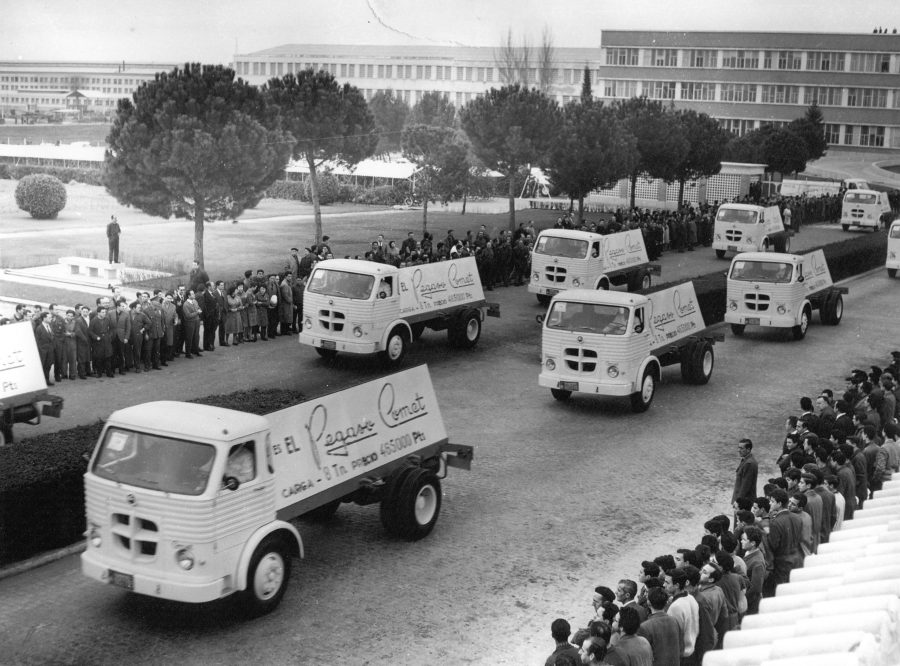Iveco has marked 75 years of the Pegaso brand, celebrating the Spanish marque for its influences over the years.
Iveco says that the ‘heritage of passion, pioneering spirit and strength’ live on in its DNA today.
Pegaso was founded by Empresa Nacional de Autocamiones (ENASA) in 1947. The Pegaso name came from the winged horse from Greek mythology that symbolised power and lightness.
The original truck factory was in Barcelona until 1955, at the former Hispano Suiza site. After that, the production was moved to Madrid, where Iveco models are still made today.
The Pegaso I and Pegaso II were successful because of the modern flat cabin of the Hispano Suiza 66-D.
In short, they became so popular that for many years cab-over models were called a “Pegaso type” truck.
Pegaso trucks, from their beginning, always stood out for their outstanding performance and fuel economy.
“This year marks an important milestone in Iveco’s history,” said Luca Sra, chief operating officer, Iveco truck business unit. “It gives us the opportunity to remember the impressive legacy of innovation and pioneering spirit of the legendary Pegaso brand.
“Its passion for excellence live on in our people and in Iveco vehicles travelling on roads across the world.”
Pegaso was responsible for an electric truck prototype in 1952. The Pegaso II could be charged in five hours and had a range of 75km.
In addition, Pegaso was the first European truck manufacturer to have a concept truck.
The SOLO 500 was revealed at the 1989 Barcelona Motor Show, boasting a number of technologies seen in every truck today. For example, it previewed GPS, rear-view cameras and a proximity radar system.




